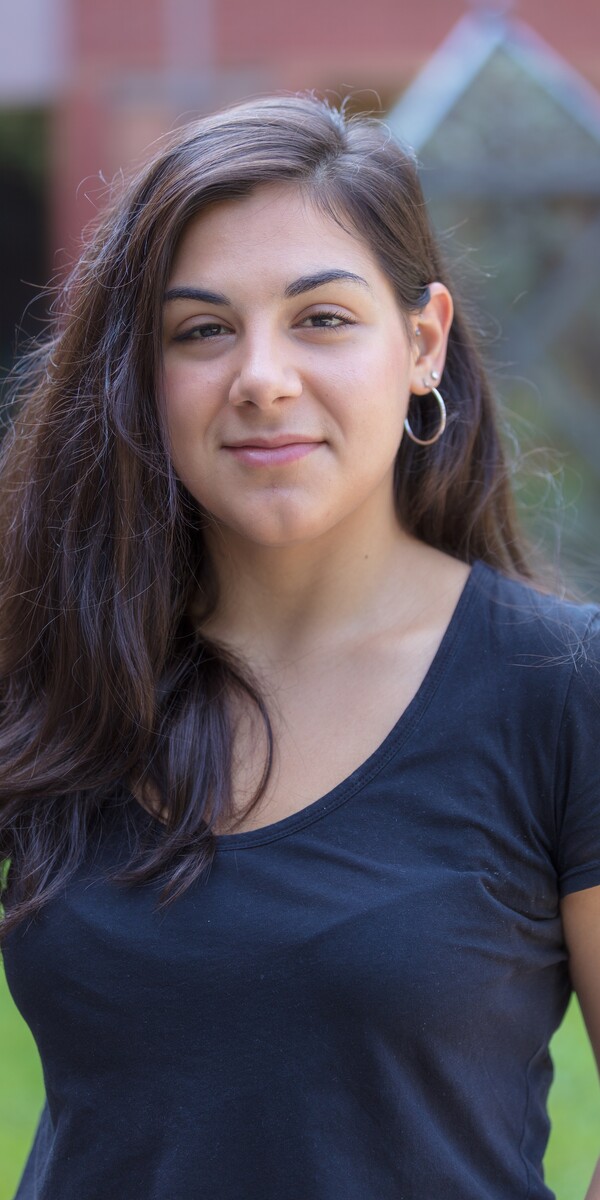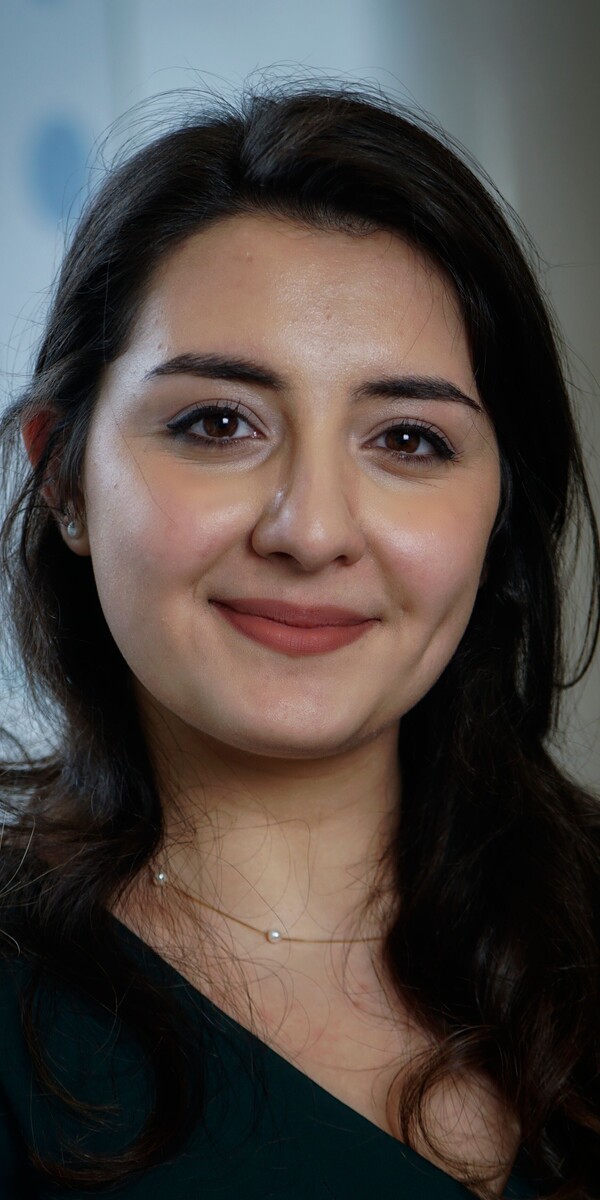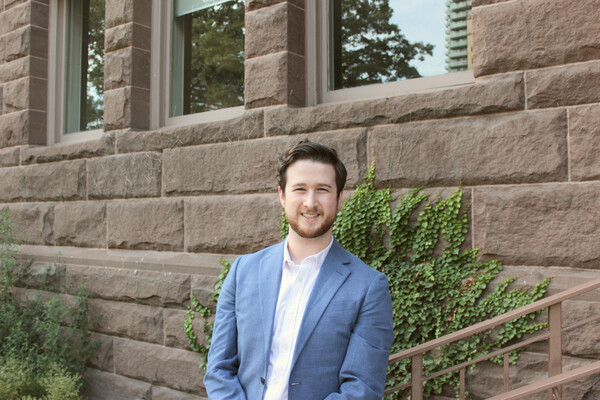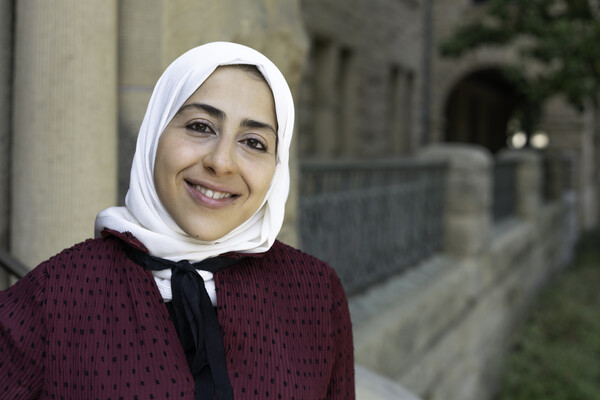Fall Graduates on Highlights of Grad School and Future Plans
Ahead of their virtual convocation ceremony on November 18, 2021, four IMS graduates share what has been the highlight of their time in graduate school, what they are doing next and their advice for incoming students.

Melissa Galati, PhD
My PhD focused on cancer genetics, specifically, a rare childhood cancer predisposition syndrome called Constitutional Mismatch Repair Deficiency Syndrome (CMMRD). Kids born with CMMRD develop many types of cancers including brain, colon, and blood cancers. When I started grad school, there weren’t really any good animal models of CMMRD, particularly animal models of CMMRD brain tumours. My work was to analyze trans-species data, from patients and new mouse models I developed, to learn more about CMMRD cancers and develop tools to test new therapies. I’ve always been interested in cancer because its something that affects everyone’s lives either directly or indirectly and I knew I wanted my work to be as translational as possible. It’s been a privilege working in the Tabori lab.
Without a double, the people have been the greatest highlight of my time at IMS. I’ve made so many life-long friends and was always so impressed with my fellow trainees and how much they engaged in and contributed to the IMS community. Whether it was planning events on IMSSA, working on Raw Talk Podcast, or playing intramurals, it was always so much more fun because of the other students.
I’m still at U of T and have just started medical school. It’s a big change from grad school, but I’m really excited to eventually wear two hats and live in both the translational research and clinical medicine worlds. My advice for new graduate students is to enjoy the process. I remember so clearly getting caught up in my own imposter syndrome and feeling a lot of pressure to work hard and excel. Yes, grad school is hard and, if you’re pursuing a PhD, can be long, but the wonderful thing is that you’re a trainee. Your job is to learn (and fail a lot). Ask for help when you’re stuck, take breaks, befriend your peers (they know what you’re going through!), and have hobbies outside of research. You’ve got this!

Kimia Ghannad-Zadeh, MSc
My research focused on understanding how the metabolic characteristic of some glioblastoma cells could promote tumorigenesis and treatment resistance. I was drawn to the field of cancer biology because of all its unknowns and how tangible the clinical translation of this research was for me. I soon realized that the field is much more complex, and clinical translation more difficult than what I had envisioned; however, I appreciated that every small discovery was a step toward improvement.
Some of the greatest highlights of my time at the IMS were working alongside the diverse student body and meeting a plethora of innovative and knowledgeable individuals. A great deal of my professional growth was thanks to the amazing group of researchers I worked with, and those I met through student groups such as IMSSA. I truly appreciated the culture of peer-to-peer support that was present amongst the students, and was fostered by the IMS through various opportunities. I truly valued the many opportunities I was given by the IMS to exercise my leadership skills and gain more experience in this area.
I am now a medical student at the Temerty Faculty of Medicine. I am very excited about learning to translate the skills I gained as a graduate student to my training as a physician, and to continue my pursuit of science and translation of medical science into clinical practice. My advice for incoming students is to have an open mind and be ready to learn from all those you will meet in this journey. Everyone’s lived experiences are different, and one can gain invaluable insight by listening to other’s stories, whether it be about research, careers, or life.

Jesse Joynt, MSc
My MSc research focused on the epigenetics of diffuse large B-cell lymphoma and testing a novel treatment strategy for patients with relapsed/refractory disease. As an undergraduate, I gained an interest in cancer research by learning just how deep of an impact cancer has on patients and how it affects a vast amount of the population. After beginning my project and shadowing my supervisor in clinic, I had a better understanding of the downstream effects of research which truly made me realize the importance of our project.
I thoroughly enjoyed my time as IMSSA Co-President and having the opportunity to work with all the outstanding students to create an amazing community, even through a pandemic. From virtual holiday parties to designing online conference halls, it has been a great experience and I am glad to have been a part of it. Other highlights for me were winning the Alan Wu Poster Competition, finally defending my thesis, and of course all the time I spent with friends I made in the lab and my amazing supervisor Dr. Robert Kridel.
My plan now is to apply to medical school. As I move into the next chapter of my life, I am looking forward to building on these experiences I had and meeting other peers with a passion for scientific discovery. My advice for all incoming students is to get involved with the IMS community. It is such an amazing way to stay connected with your peers and learn about all the resources you have available to you as a grad student!

Alaa Youssef, PhD
I have always been intrigued by the complexity of obesity management as a chronic disease. In my PhD, I focused on studying obesity management in patients who received bariatric surgery, as a successful treatment for obesity, to understand the influence of physiological and psychosocial factors on patients’ long-term outcomes with the goal to inform the design of post-bariatric surgery care programs that personalize obesity care for patients with complex care needs.
My greatest highlight has been the opportunity to connect and make an impact as a graduate student on several leadership committees at the IMS. I always strived to voice the graduate student perspective and inform the vision and decisions that have an impact on current and future graduate students. I’m so grateful for the relationships I developed with great faculty, peers, and staff over my years of studies at the IMS.
I’m currently a post-doctoral fellow at Stanford School of Medicine in the Department of Radiology. I’m so excited for the opportunity to apply my research knowledge and skills in a new domain, where I help address some of the critical questions around AI implementation in healthcare to ensure it is safe as a tool to impact patient care. My advice to all incoming students is stay open-minded, explore new opportunities, and do not fear pivoting and applying your knowledge and skills as a scientist in a new domain.
